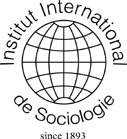| |
About the 40th World Congress of the International Institute of Sociology
The theme of the 40th World Congress of the International Institute of Sociology is:
After Western Hegemony: Social Science and its Publics
The last decade of the 20th century and the first decade of the new century have witnessed world historical developments that point to the beginning of the end of what might be called the colonization of minds and cultures. Ideas and practices associated with the modern West have been critiqued for long, viewed with suspicion, and rejected, rightly or wrongly, in the past. But never before has the impact of this critique been profound enough to launch a transformation in the social and political imaginary of large numbers of people in the world. A new historical dynamics appears to have been set in motion and a space has emerged for new cultural and civilizational encounters. This may entail greatly increased potentials for equality between human beings in different regions of the world but perhaps also the emergence of new structures and spaces of hegemony.
The beginning of the end of the hegemony of mainstream Western intellectual traditions may therefore be the right moment to reflect about the relationship of the social sciences to this transformation. How have the social sciences shown an awareness of adaptation to these world historical changes? Is social science still shot through with assumptions of Western modernities? To what extent, if any, may such assumptions still be justified and to what extent are they amenable to rethinking and rearticulation and to what extent will they have to be discarded?
Is ethnocentrism still inscribed in the most basic categories of social science? If so, what can be done to transform this condition? How can social science become trans-cultural or global? What, after Western hegemony, is or should be the internal structure of social science? What should it be for? And for whom? What are the conditions, in particular the institutional contexts, in which it best flourishes, both in the North and the South, and achieves a form of decolonization beneficial to all? What has been and should be the ethics underlying it?
This broader context also gives us the opportunity to raise several other issues. What are the various ways in which social sciences relate to states, markets, wider public spheres and to social and political movements? What is the relationship between social scientific knowledge and forms of knowledge produced in other arenas? How are social scientific skills to be taught at schools and colleges, in universities and research institutes? How is the birth of ideas and insights affected by the academization and professionalization of collective self-knowledge? Which factors, structural or motivational, impinge adversely on the social sciences? In which ways does the language in which social science is carried out ľliterally the language in which social scientists read, speak and write ľ affect the content of social sciences?
Questions? Please contact iis2012@iisoc.org
|

